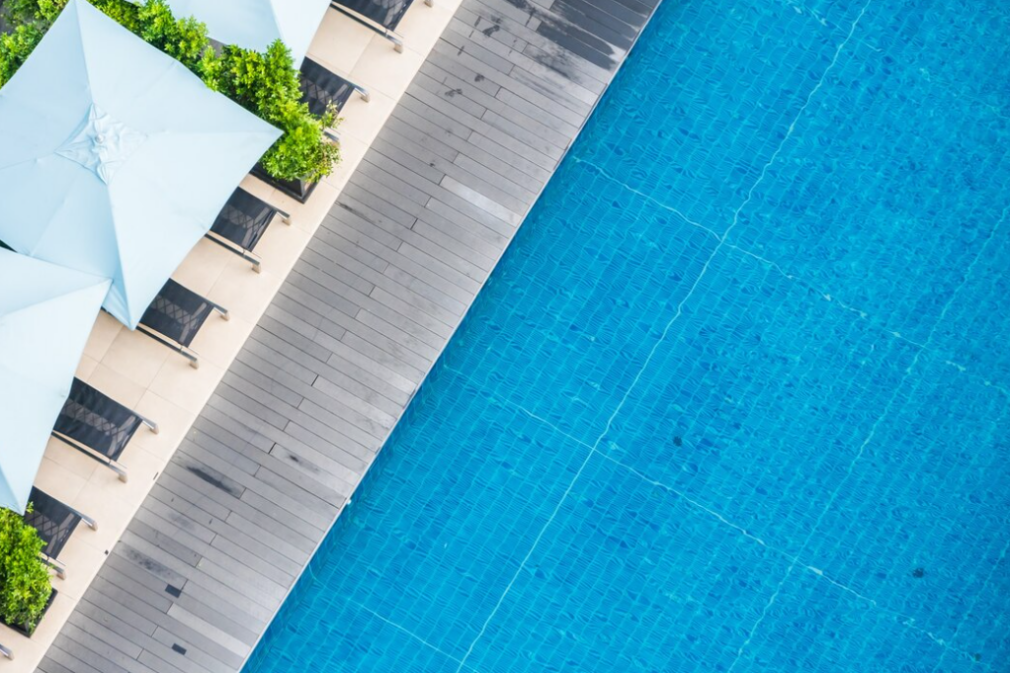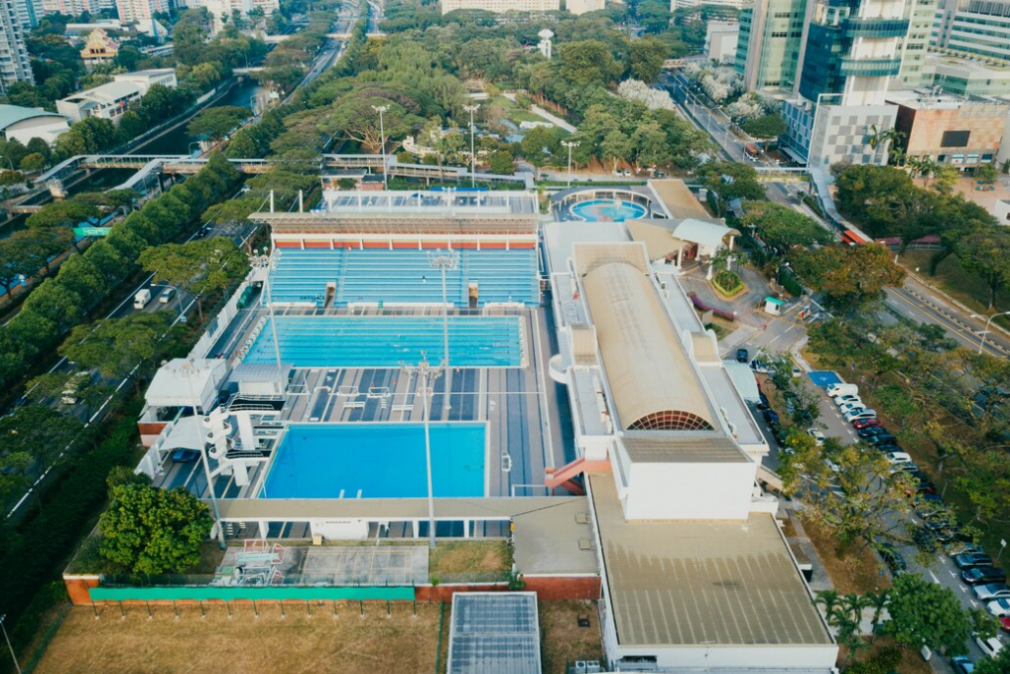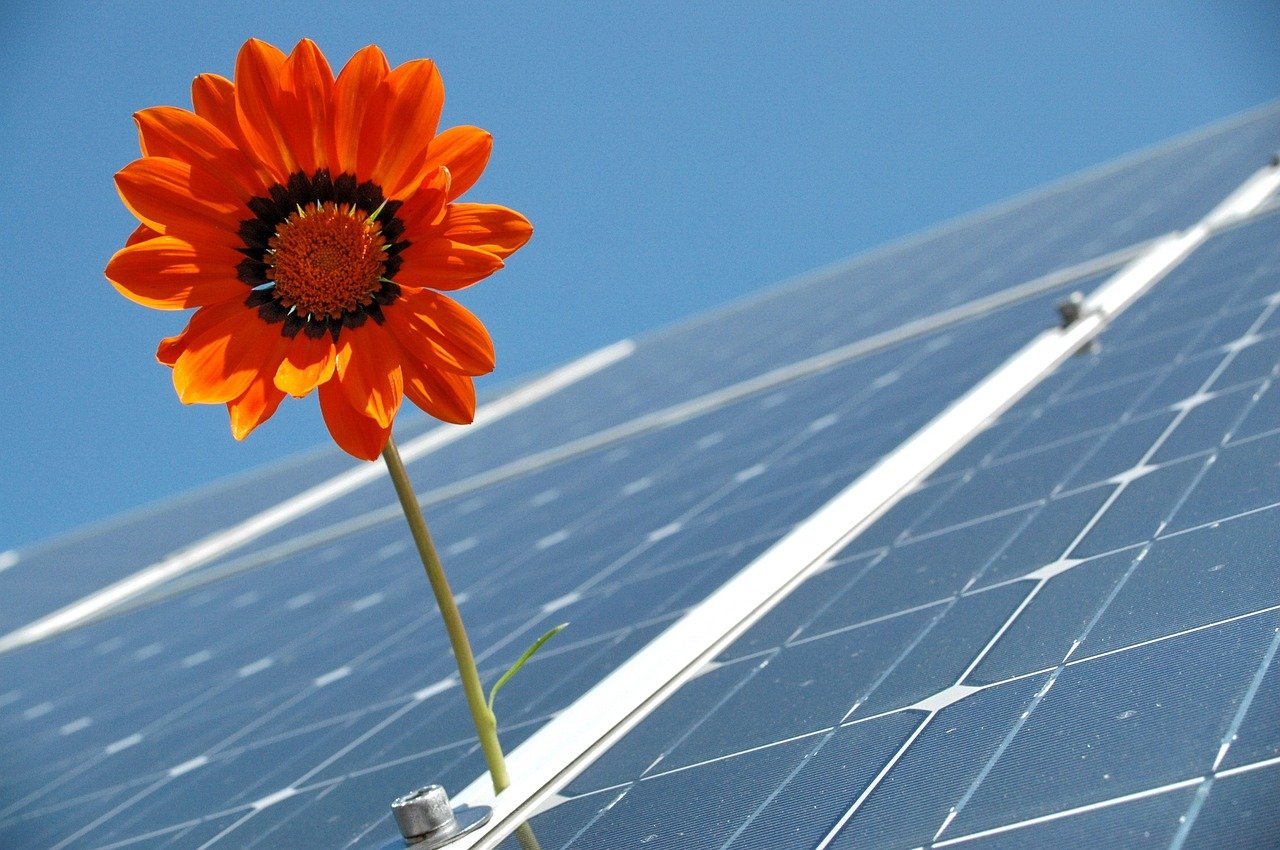Orlando’s Solar Pool Heating: A Complete Cost Guide
In this article, we’ll delve into the costs linked to solar heating for inground pools in Orlando and its nearby regions. As summer wanes, it’s hard to bid goodbye to those sunny day swims. However, you can seamlessly extend your swimming season into the cooler months in a manner that’s both eco-friendly and cost-effective.
Solar pool systems harness sunlight to warm your pool water. Not only is it cost-free to operate, but it can also prolong your swimming period to almost 9 months. Our goal is to inform readers about the ins and outs of setting up a solar pool heating system, ensuring you optimize its functionality, usability, and value for money.
Table of Contents:
- Understanding Solar Pool Heating Systems;
- Solar Pool Heater Mechanics;
- What’s the Price Tag for Solar Pool Heaters?;
- Exploring Solar Pool Heater Panel Varieties:
- Thermal Solar Collectors;
- Solar Pool Covers.
- Guide to Setting Up a Solar Pool Heating System:
- Setting Up the Solar Collector;
- Laying Out the Plumbing.
- The Advantages of Solar Pool Heating Systems;
- Conclusion.
Understanding Solar Pool Heating Systems
Solar pool heating systems have become a prevalent choice in Orlando for warming up swimming pools. Before investing in a solar heater for your in-ground pool, it’s crucial to delve deep into your research, particularly regarding the associated costs.
Like any other technology, solar pool heaters present numerous benefits and a few challenges. The ideal heating solution for your pool largely depends on your region’s climate, given the variety of distinct systems available today.
That’s why we’ve crafted this comprehensive guide on solar pool heating expenses. Covering everything from cost breakdowns to its operation, and weighing the advantages against the drawbacks, our aim is to arm you with all the necessary knowledge for an informed purchase decision.
Solar Pool Heater Mechanics
Solar pool heaters operate through a solar collector, a device that circulates pool water to harness the sun’s raw energy. Solar heating stands out as an environmentally friendly and highly efficient method to warm chlorinated pool water. At its core, solar thermal technology converts solar radiation into heat within a thermodynamic system.
For in-ground pools, there’s a filter that cleanses the water of debris before directing it to the solar collector. The pool’s built-in pump circulates water through this filter and collector, and then returns it to the pool. This water circulation, moving through 2-inch plumbing pipes, constantly shuttles between the pool and the collector.
An integral component is the actuator control valve, which can be automated or manually operated. It uses the solar collector to channel pool water based on your desired temperature. As water cycles through this valve, it garners heat from the roof. This consistent movement warms the pool by 2-4 degrees daily, with an aggregate rise in temperature of 12-15 degrees.
Though a conventional inground pool pump consumes minimal energy, usually under 1kW per hour, the heat transformation within a solar pool heating system is purely derived from solar energy.
What’s the Price Tag for Solar Pool Heaters?

On average, the acquisition and setup of a solar pool heater range from $3,000 to $4,500. Given local fuel prices, the return on this investment typically spans 1.5 to 5 years. Additionally, solar heaters outlast their gas or heat pump counterparts and are more cost-effective.
The precise expenses, payback durations, and overall costs associated with solar pool heating are influenced by several determinants. This is why, prior to committing to a solar heater for your inground pool, it’s essential for experts, like Everything Solar, to:
- Assess the solar energy availability;
- Define the required size and capacity of the pool heating apparatus;
- Pinpoint the optimal placement and direction for the solar collector;
- Evaluate the solar heating system’s efficacy;
- Guide you regarding performance expectations, upkeep responsibilities, and best practices.
Assessing the Costs of Solar Pool Heating Systems
To effectively evaluate solar pool heating expenses, either you or a specialized solar contractor should consider:
- The thermal efficiency and ratings of a solar collector;
- The necessary number of collector panels for optimal pool heating;
- The comprehensive installation costs;
- Proper orientation and adjustments for peak efficiency.
Yet, it’s essential not to base your decision on cost alone. While evaluating solar pool heaters, it’s crucial to weigh other factors, such as the design’s size and efficiency, and ensuring minimal impact on the roof’s structure.
Exploring Solar Pool Heater Panel Varieties
Every solar pool heater functions on a basic principle: Water is pumped from the pool using your existing pump, channeled through panels warmed directly by the sun, and then recirculated into the pool at an elevated temperature.
Thermal Solar Collectors
Predominantly used worldwide, thermal solar collectors stand as the most popular solar heating systems. Commonly known as solar panels, these are typically mounted on house rooftops. However, installations beside the pool or at ground level are also viable.
The most efficient of these panels are crafted from UV stabilized polypropylene. Pool water circulates through them via a network of headers and tubes. Such panels are ideal for warm and sunny locales like Orlando, Florida, but their efficacy diminishes in colder regions. In such climates, they may be supplemented with other pool heating methods.
Solar Pool Covers
Acting as a thermal blanket, solar pool covers retain warmth, especially during cooler nights when temperatures dip below 60 degrees, minimizing overnight heat loss. An alternative to traditional covers is Solar Sun Rings, which are 4-foot diameter stackable covers, offering ease in storage and removal during swim times.
Beyond heat retention, solar pool covers mitigate water evaporation, curb energy wastage, enhance pool upkeep, and offer protection from external contaminants.
Guide to Setting Up a Solar Pool Heating System
Having delved into the intricacies of solar pool heating costs and the diverse panel options, it’s crucial to understand the installation nuances.
When considering an installation, it’s advisable to opt for reputable and seasoned companies offering extended warranties for their solar heating systems. It’s worth noting that several providers grant ten-year or even longer warranties on their products.
Setting Up the Solar Collector
The solar collector stands as the heart of your solar pool heating system, being responsible for absorbing and transferring heat to the pool. It’s imperative that collectors are meticulously assembled and installed to ensure optimal performance.
A pivotal decision lies in determining the appropriate size of the solar collector. Factors like pool dimensions and roof orientation play a role here. While professional insights are invaluable, a basic guideline suggests: for south-facing panels, size should be roughly 70% of the pool’s dimensions, whereas for east or west orientations, it should be around 90%.
Laying Out the Plumbing
Following the collector setup, focus shifts to the plumbing system. This network facilitates water circulation, ensuring a smooth transition from the pool to the collector and back. For a refined and integrated appearance, plumbing can be color-coordinated with your house, provided you have a matching paint shade. This fosters a harmonious blend with the house’s exterior, accentuating aesthetic appeal.
The Advantages of Solar Pool Heating Systems
Embracing solar pool heating systems not only leads to significant cost savings in the immediate and distant future but also offers unparalleled convenience and minimal maintenance. To provide a broader perspective, we’ve elaborated on the myriad benefits of solar heaters for inground pools.
- Cost-Efficiency & Eco-Friendly: Opting for solar heaters offers a dual advantage. It not only diminishes recurring energy expenses but also curtails your ecological footprint, a feature often absent in conventional heaters. Harnessing the sun’s abundant and cost-free energy allows homeowners to warm their pools without the burden of hefty energy invoices. While electric solar panels in Florida currently qualify for a 26% tax credit (which solar pool heaters don’t), the latter still stands as a more economical choice when juxtaposed with pricier electric and gas alternatives;
- Enhanced Leisure: For those who relish poolside activities – be it a refreshing swim, engaging in water sports, or just unwinding under the sun – solar pool heaters in places like Orlando amplify the experience. They extend the swimming season, allowing residents to make the most of their pools beyond the balmy Florida summer;
- Swift & Smooth Installation: Though self-installation is not recommended, a notable benefit lies in the expeditious setup by professionals, such as Everything Solar. The entire process can be wrapped up in mere hours, eliminating the need for homeowners to disrupt their routines or sacrifice their leisure time;
- Reliability Across Decades: Solar energy’s applications span beyond pool heating – it’s been pivotal in power production and domestic water heating for over three decades. The sturdy construction of solar pool heaters, typically using durable, UV-stabilized polypropylene, ensures longevity. Without engines or fans to fret over and immune to heat transporter corrosion, they stand as paragons of reliability;
- Minimal Upkeep: The inherent sturdiness of solar systems translates to negligible maintenance. Some might argue that they’re virtually maintenance-free. In essence, investing in a solar pool heating system is a one-off expenditure with lasting benefits;
- Consistent Performance: While gas or electric heaters might offer quick heating, they often become maintenance-intensive over time, owing to their intricate components. In stark contrast, solar pool heaters are impervious to issues like short-circuits, wear and tear, rusting, or obstructions from external particles like pollen or dirt. Their steadfast performance ensures uninterrupted pool enjoyment for homeowners.
What is the Monthly Cost of Heating a Pool?

The expense of heating an average-sized pool per month using a heat pump typically ranges between $150 to $300 during the winter months, while it’s around $100 in the spring and fall. Additionally, the initial investment for a heat pump is approximately $4,000.
For those considering a gas heater to warm a 10,000-gallon pool, be prepared to spend over $600 per month on fuel costs, and the initial outlay for the gas heater itself is $2,600.
Alternatively, a more budget-friendly option is a solar pool heater. This system incurs no ongoing operational expenses as it’s integrated with the existing pool pump, redirecting water to the solar heating panels. It’s worth noting that its effectiveness may slightly decrease during the winter months (December through February) due to shorter daylight hours and longer nights. During this period, when you might find yourself needing a light jacket or sweater to venture outdoors, the allure of a dip in your pool may not be as strong.
Conclusion
In conclusion, armed with comprehensive knowledge about the advantages and functioning of a solar pool heating system, we strongly encourage you to take the next step towards a more energy-efficient and eco-friendly swimming pool experience. To embark on this journey, we invite you to get in touch with Everything Solar for a complimentary consultation tailored to your specific needs. To schedule your free survey at your property, don’t hesitate to reach out to us today at 407-545-3590. Make the transition to a solar-powered pool heating solution, and enjoy the benefits of sustainable and cost-effective warmth for your pool year-round. Your path to a greener future starts with a simple call.








